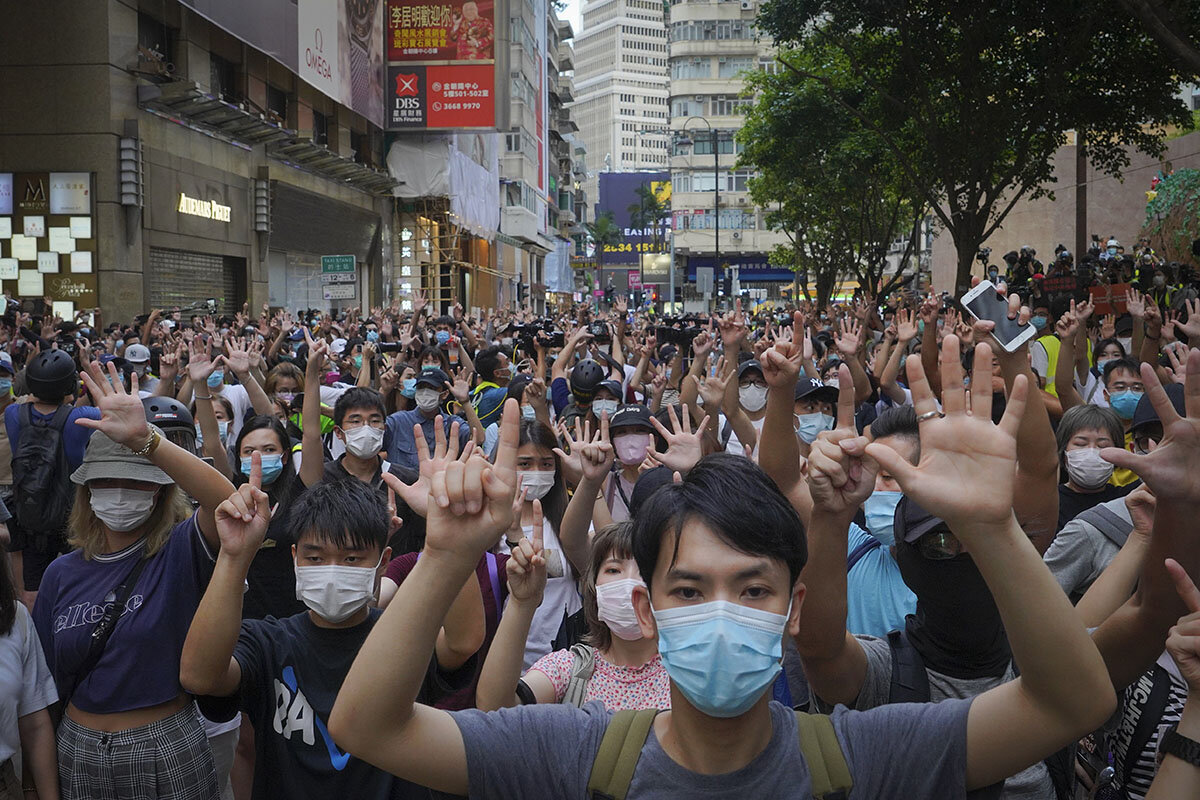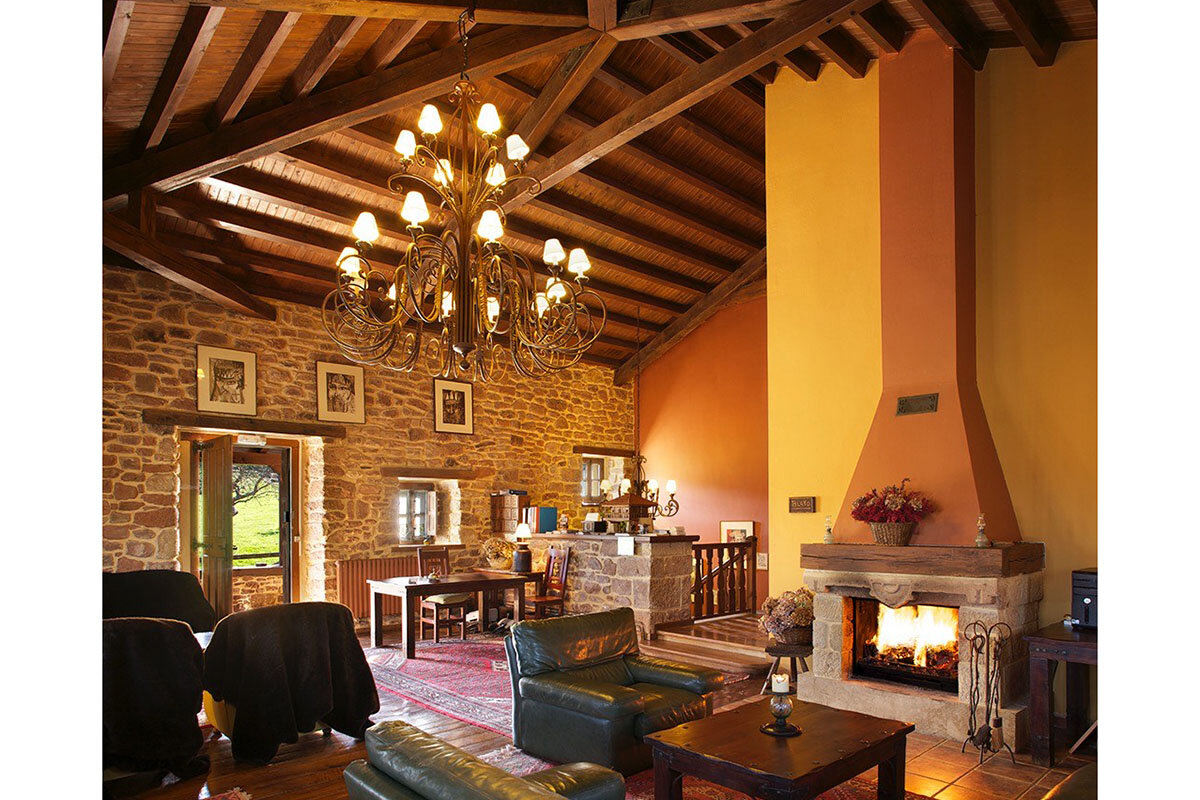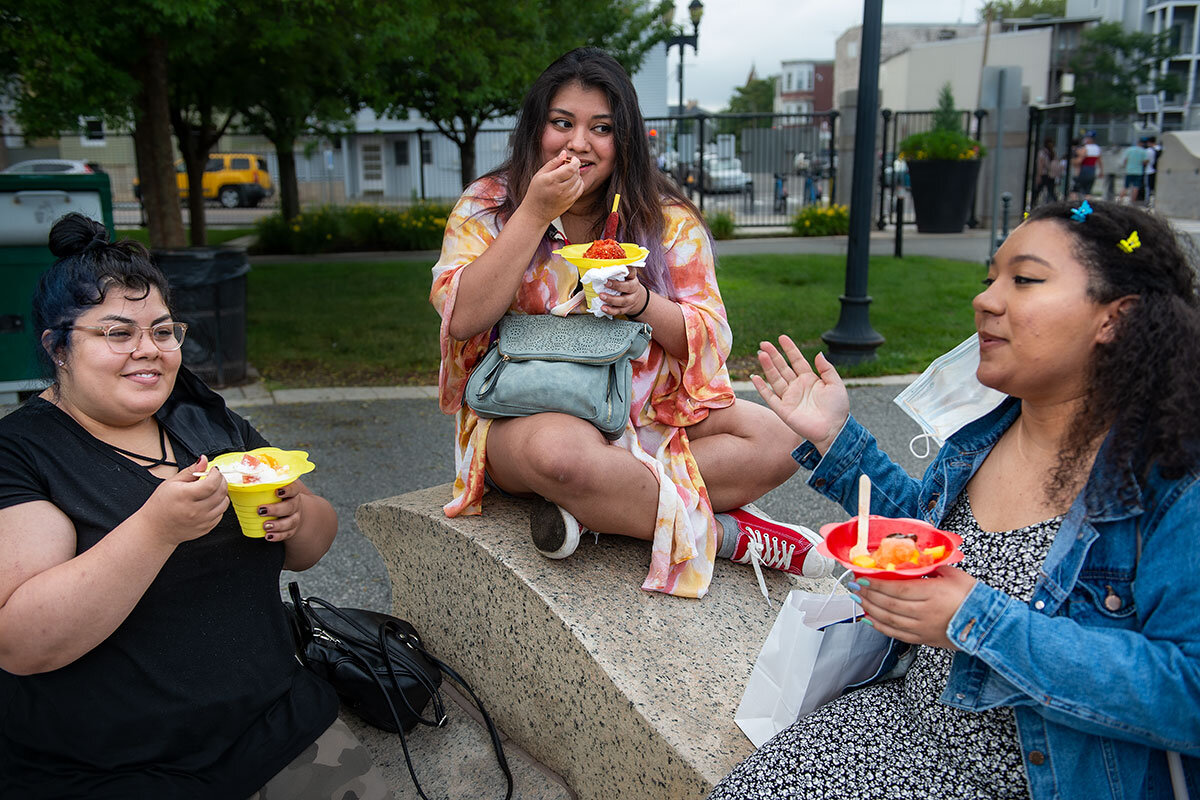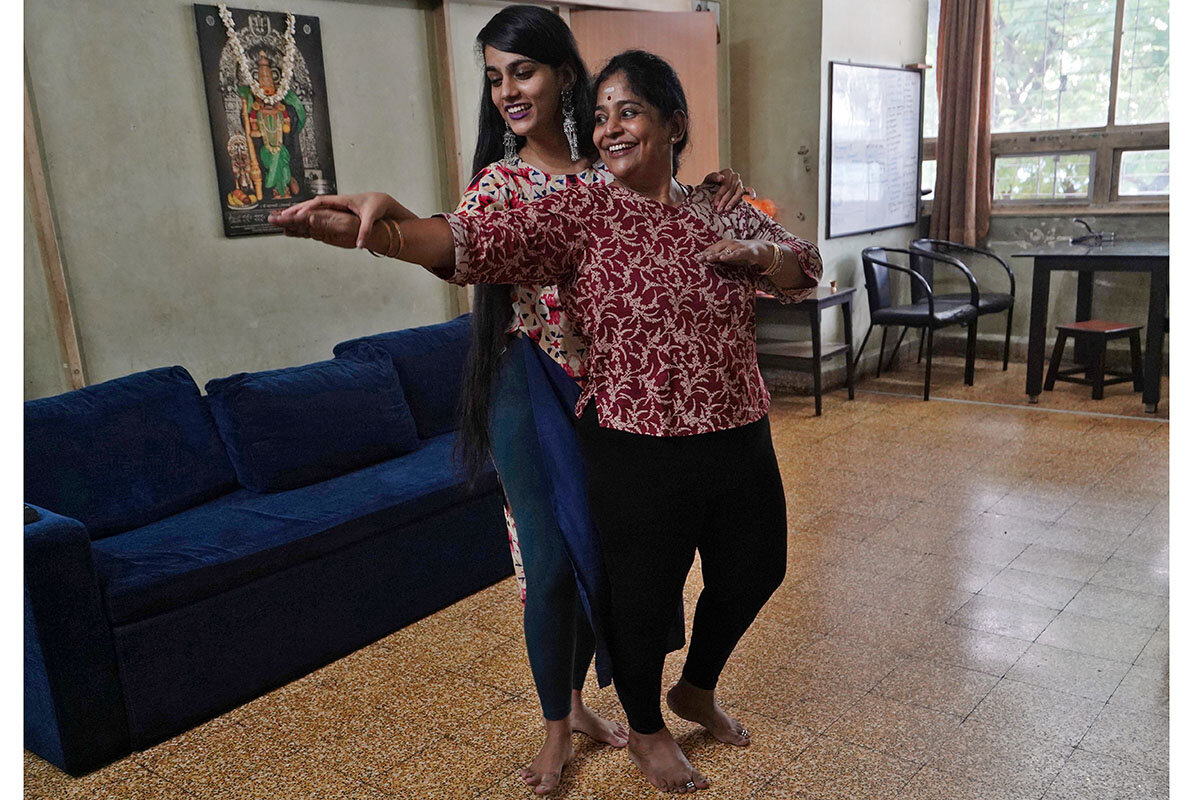For years, Hong Kong residents worried about shrinking space for freedom. Today, they woke up to a law that appears to draw a line between what they have known and loved, and whatever lies ahead.
Monitor Daily Podcast
- Follow us:
- Apple Podcasts
- Spotify
- RSS Feed
- Download
 Mark Sappenfield
Mark Sappenfield
“Things aren’t going to go back to normal. The young are going to play an active part in either destroying or creating a new world. That’s kind of extraordinary.”
That’s a quote from author Jon Savage, and it is displayed prominently atop an annual report on millennial and Generation Z attitudes by the consulting firm Deloitte. These groups have been called many things – social media-obsessed “snowflakes,” for one. But to Deloitte, they are the “resilient generations.”
According to the survey, coronavirus layoffs mean 30% of millennials are without a paying job. Half say climate change has irreparably damaged the planet. Yet the underlying tone is one of determination. “They know that a post-pandemic society can be better than the one that preceded it, and they’re tenacious enough to make it a reality,” the survey states.
Today’s leaderless rebellions against climate change, sexual abuse, and institutionalized prejudice might look different from the organized activism of the 1960s. But they have shifted thought. Amid the protests for racial justice, one Republican pollster tweeted, “In my 35 years of polling, I’ve never seen opinion shift this fast or deeply. We are a different country today than just 30 days ago.”
Nearly 75% of those surveyed by Deloitte said they intended to turn the empathy fueled by the pandemic into community action. It appears that is already happening.











